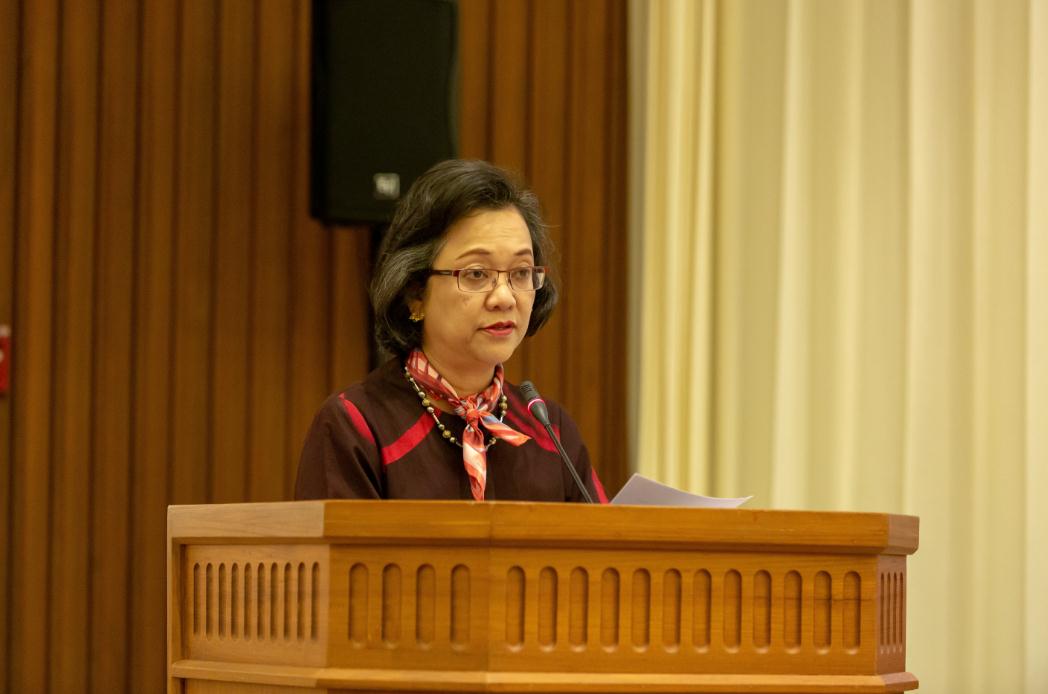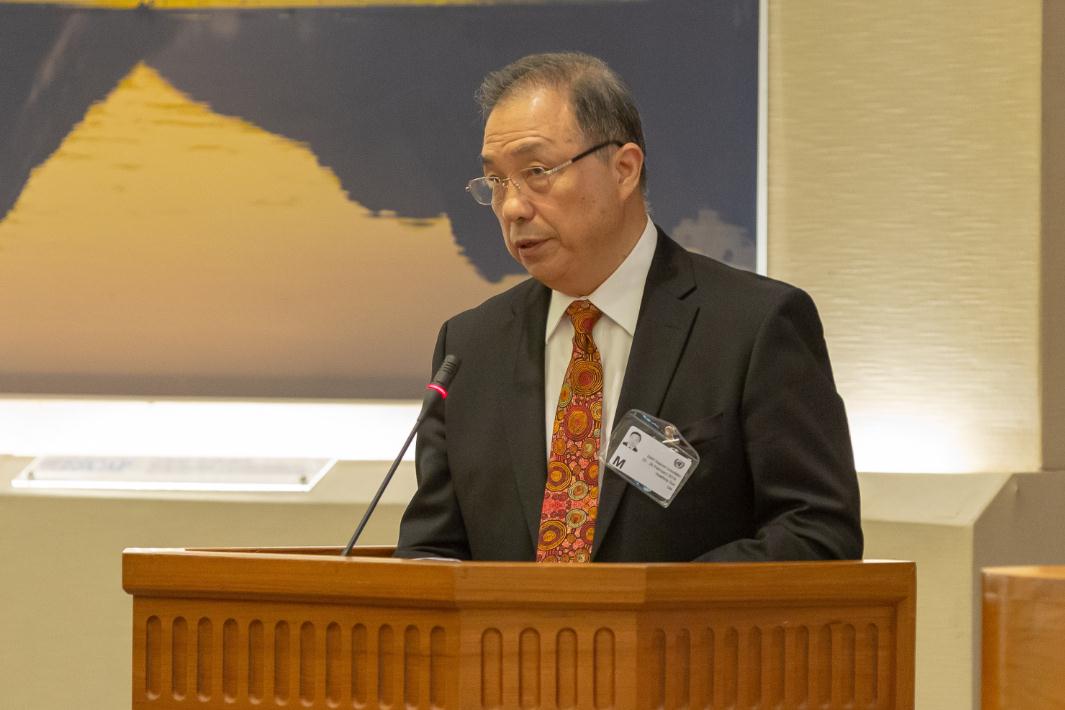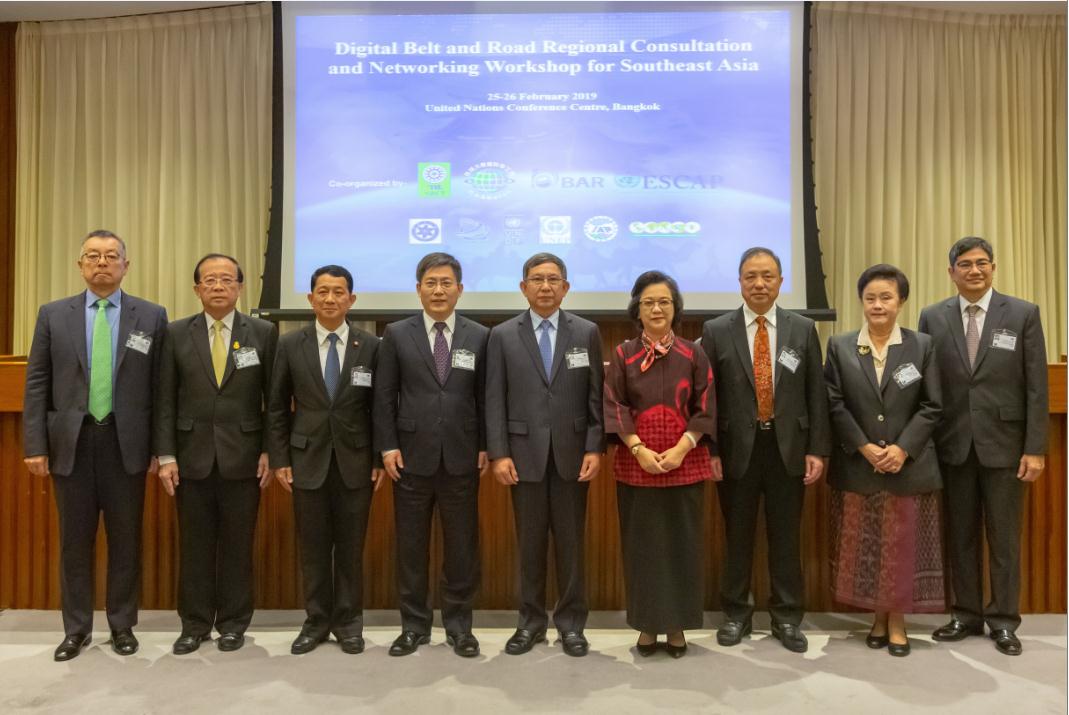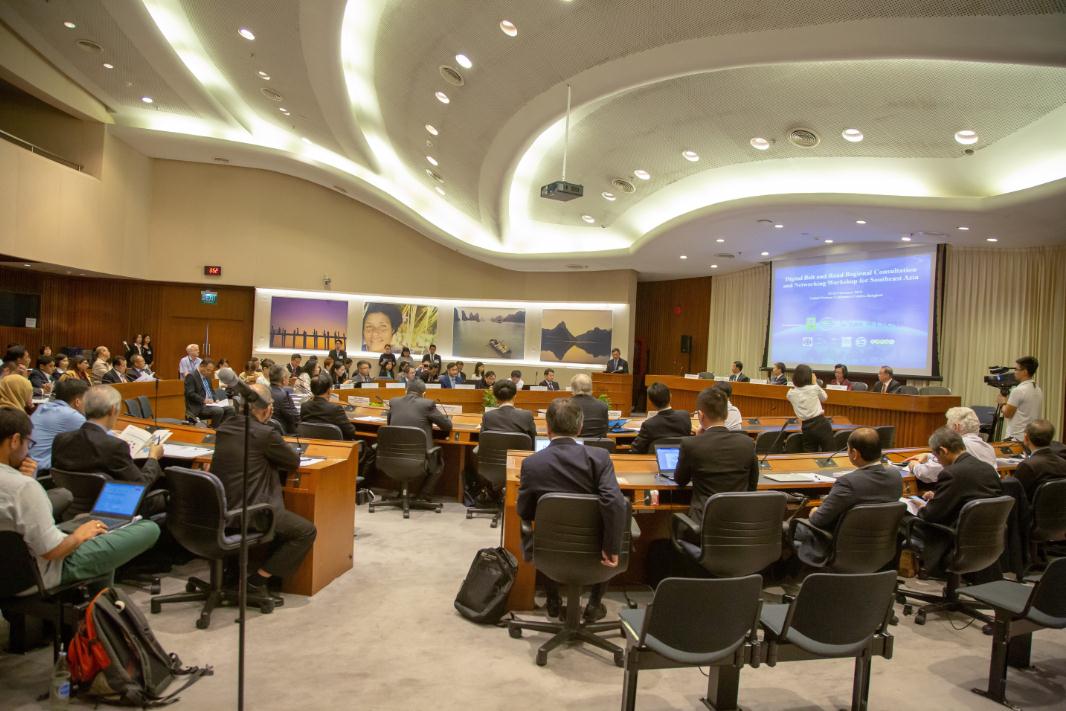DBAR Holds Regional Consultation and Networking Workshop in Bangkok
The first DBAR regional consultation and networking workshop for South East Asia was held at the UN’s regional head office in Bangkok, Thailand from February 25 – 26, 2019. The regional workshop was organized under the framework of the China Academy of Sciences Earth Big Data Science Project and the International Science Program of Digital Belt and Road, co-sponsored and hosted by the Bangkok Center for International Excellence of the Digital Silk Road Program, the Thai National Research Council and the United Nations Economic and Social Commission for Asia and the Pacific.
A formal opening ceremony was organized on the 25th of February. H.E. Prajin Juntong, Deputy Prime Minister of Thailand, and H.E. Mr Lyu Jian, Ambassador of China in Thailand attended the ceremony. Other dignitaries included Prof. Guo Huadong, Chair of DBAR; Ms. Armida Salsiah Alisjahbana, Under-Secretary-General of the UN; Mr Kaveh Zahedi, Deputy Executive Secretary of ESCAP; Prof. Dr. Siriurg Songsivilai, Secretary-General at NRCT; Dr. Eden Wood, President AIT; Assoc. Prof. Wuttisak Larbchareonsub, President Ramkhamhaeg University and Dr Anond Snidvongs, Executive Director, GISTDA.
The event was attended by representatives from different bodies of UN including the United Nations Economic and Social Commission for Asia and the Pacific (UNESCAP), the United Nations Environment Programme (UNEnvironment), the United Nations Development Programme (UNDP), the United Nations Regional Committee for Geographic Information Management in Asia and the Pacific (UNGGIM-AP) and the United Nations Satellite Applications Project (UNOSAT). In addition to the UN bodies, institutional representatives from 10 Southeast Asian countries, including, Cambodia, Indonesia, Lao, Malaysia, Myanmar, Philippines, Singapore, Thailand and Vietnam were also invited. They expressed interest in working with DBAR towards SDG and regional problems, through joint projects, capacity building actions, and support for infrastructure development.
H.E. Prajin Juntong, Deputy Prime Minister of Thailand, during his opening remarks said that Thailand attaches great importance to the concept of sustainable development, and that sustainable development and the Sufficiency Economy Philosophy are integral parts of Thailand constitution. He expressed that Digital Belt and Road Program has promising prospects, including, enhancing capacity-building and technology transformation, information based decision support capacity and realization of the sustainable development goals of the United Nations, all of which are very desirable for Thailand. He affirmed that China and Thailand already have close cooperation in data sharing, academic exchanges, project cooperation and capacity-building, which will help to promote scientific and technological innovation in Thailand and in the implementation of the "Thailand 4.0" strategy. He hoped that the meeting would be a milestone in consolidating the partnership between the two sides and that the cooperation between Thailand and the Digital Belt and Road program will continue to progress and contribute to a better future of the region.
H.E. The Chinese Ambassador, Lyu Jian expressed his support for the DBAR Program and looked forward to its greater role in helping the sustainable development of Southeast Asia with the big data of the Earth.
Prof. Guo Huadong, Chair DBAR Program said that the DBAR plan is committed to promoting sustainable development through use of big earth data and has already developed a big earth data platform. He expressed confidence that the DBAR program in general and the big earth data platform in particular will provide a scientific basis for decision-making and policy formulation. Prof. Guo, acknowledged that the big earth data platform is open to all the belt and road countries and hoped that this will allow to achieve "digital interconnection and sharing and prosperity." He hoped that the workshop will be a first step to formalize practical cooperation through initiating demonstration research projects.
Armida Salsiah Alisjahbana, Under-Secretary-General of the United Nations and Executive Secretary of the United Nations Economic and Social Commission for Asia and the Pacific, expressed that despite the rapid economic development of Southeast Asian countries, poverty, nutrition and food safety are still outstanding contradictions facing countries, which will hinder their sustainable development. She believes that Digital Silk Road is committed to providing decision-making support solutions based on large Earth data, which will help to address the challenges of sustainable development in Southeast Asian countries. Collectively the UN agencies expressed interests in potential of big Earth data and its role in linking information with policy development and decision making, nationalizing and localizing SDG indicators, and exploring interaction between different indicators.
The workshop focused on identifying capacity of different South East Asian Countries, including their data generation, technological and infrastructural capabilities. The representatives from different renowned institutes of the participating countries presented their efforts towards sustainable development goals, and broadly identified areas for cooperation with DBAR. Overall they believed that the plan provided more opportunities for Southeast Asian countries to deepen their space technology cooperation.
The workshop marks the practical efforts of DBAR to develop joint projects with regional partners to demonstrate use and benefits of big earth data and DBAR big Earth data platform for sustainability challenges in addition to other regional challenges including environmental protection, disaster risk reduction, water resource management, urban planning, food security, coastal zone management, and conservation and sustainable use of natural and cultural heritage sites over the next few decades. The workshop is successful in introducing DBAR to the regional partners, its resources and capabilities and identifying their interests, challenges and avenues for collaboration and cooperation.

H.E. Prajin Juntong, Deputy Prime Minister of Thailand attends the opening ceremony.

Armida Salsiah Alisjahbana, Under-Secretary-General of the UN gives a welcome speech.

Prof. GUO Huadong, Chairman of DBAR addresses to the workshop.

A group photo.

A view of the workshop.



News & Events